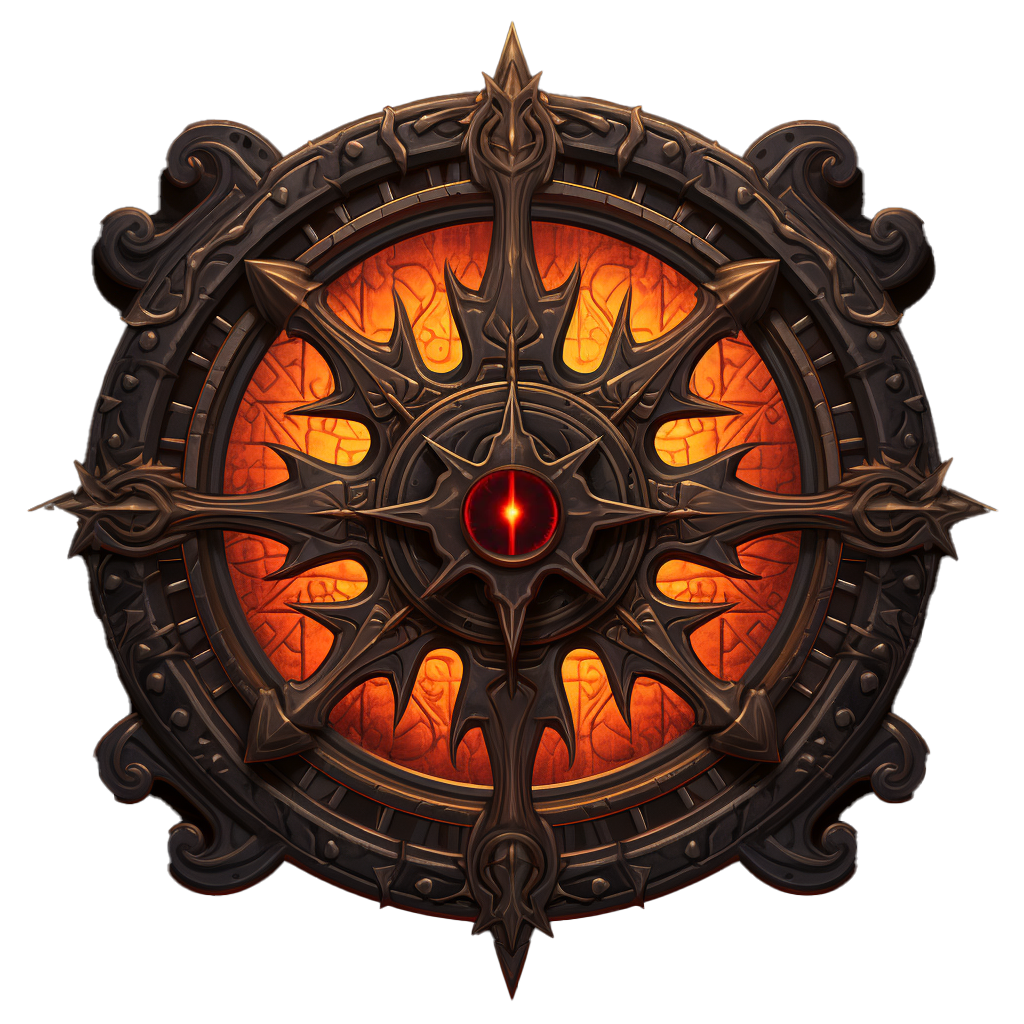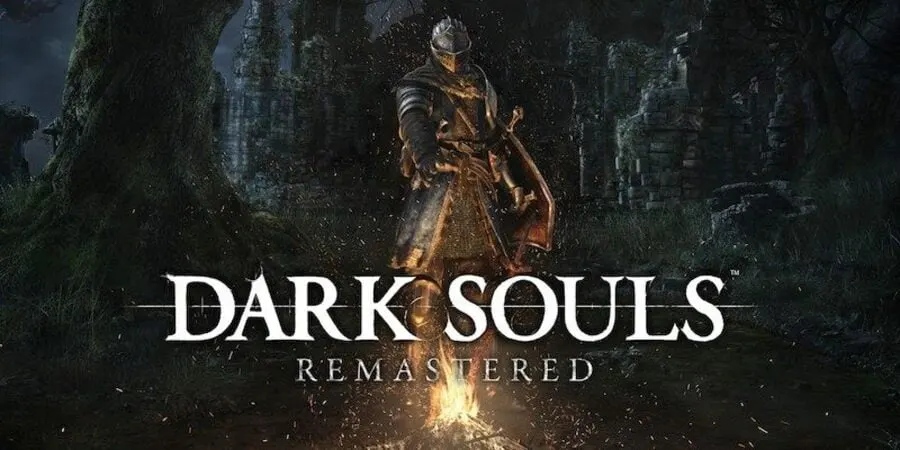Dark Souls
Pros
- In-depth, skill-based combat system encourages strategic thinking.
- High difficulty level presents a rewarding challenge, ensuring a sense of accomplishment with each victory.
- The vast and interconnected world is filled with unique enemies and intricately designed locations, encouraging exploration.
- High degree of character customization allows players to shape their gameplay style and approach.
- A seamless multiplayer system adds another layer of unpredictability and depth to the game.
Cons
- The high difficulty curve may deter some players or become frustrating over time.
- Occasional graphical glitches can momentarily break immersion.
- The game's checkpoint system, while strategic, can also feel unforgiving, especially after dying in a hard-to-reach area.
- Limited in-game guidance may make navigation difficult for new players.
- The threat of multiplayer invasions can be stressful and disrupt the pace of the game for some players.
Dark Souls is an action fantasy RPG that gained recognition for its intricate combat system and tantalizing difficulty. Developed by FromSoftware and published by Namco Bandai Games, Dark Souls became a paragon of challenging gameplay, demanding meticulous strategy, and precise execution from players. Released in 2011, Dark Souls has left an indelible mark on the genre, inspiring the term “souls-like” to describe games sharing similar mechanics and difficulty.
- Developer: FromSoftware
- Publisher: Namco Bandai Games
- Release Date: September 22, 2011
- Platforms: Microsoft Windows, PlayStation 3, Xbox 360
- Official Website: https://en.bandainamcoent.eu/dark-souls/dark-souls-remastered
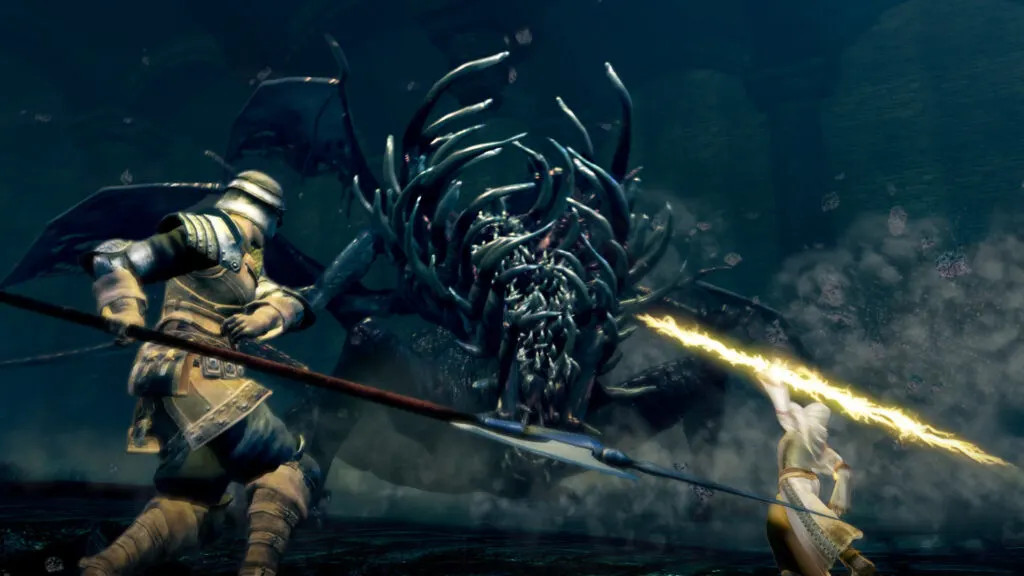
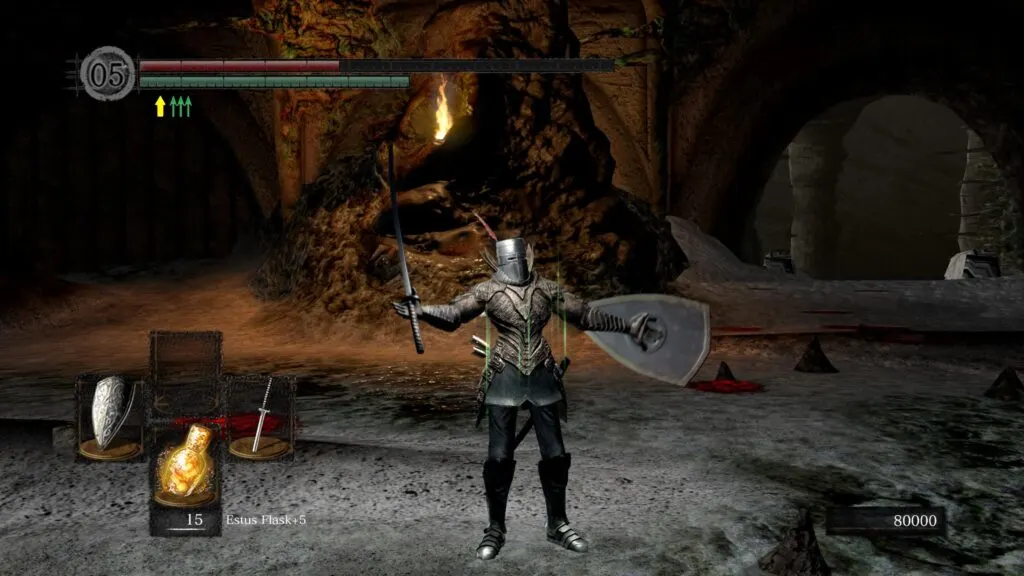

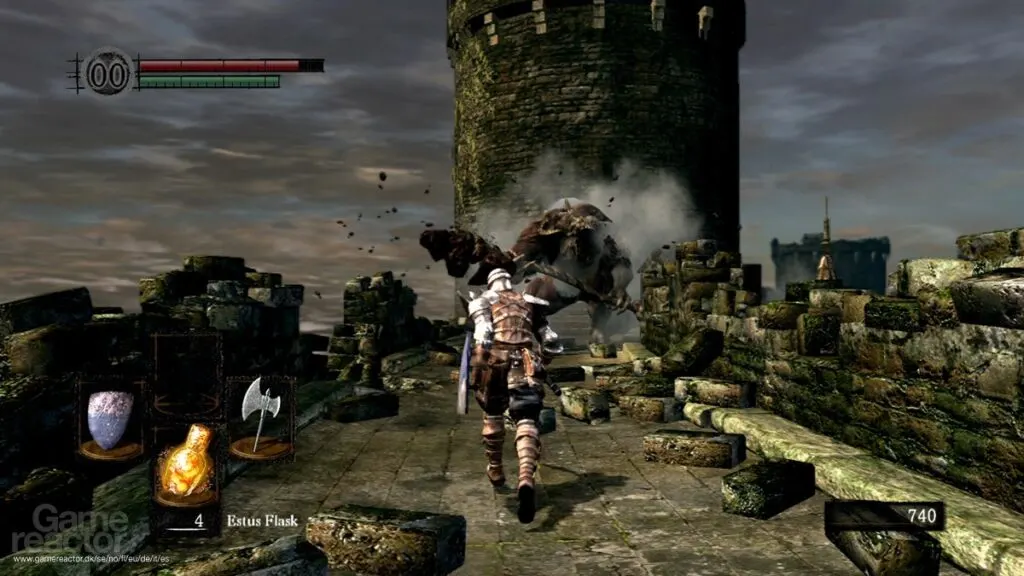
Immersive Gameplay
Dark Souls is the spiritual successor to Demon’s Souls, a game that was lauded for its groundbreaking approach to action RPGs. Continuing in the same vein, Dark Souls transports players to the grim kingdom of Lordran, where they are placed in the shoes of a cursed undead. The mission? To navigate through a series of hostile environments and ferocious enemies, seeking to uncover the unsettling truth of their existence and the decaying world around them.
The intricate and deliberate combat system is a cornerstone of Dark Souls. The game provides an array of medieval weapons, from swift swords and devastating greatswords to bone-crushing axes and heavy maces. This vast array allows players to engage in combat in various ways, from heavy and hard-hitting blows to quick and nimble attacks. Besides, players can also employ magic spells for ranged attacks or to augment their melee capabilities, further broadening the tactical scope of combat.
In Dark Souls, the specter of death looms large. Yet, dying is less a punishment and more a brutal learning tool. Each death serves as a learning opportunity, encouraging players to understand and adapt to the game’s mechanics. Upon death, the player loses all accumulated souls – the primary currency for leveling up and buying items. However, a beacon of hope remains. Reach the spot where you met your untimely end, and you can reclaim those lost souls. But be wary; a second death before retrieval results in a permanent loss.
Bonfires, scattered throughout the game’s intricate world, serve as both checkpoints and safe havens. Here, players can replenish health, repair equipment, and level up by spending collected souls. However, rest comes at a price. Upon respawning at a bonfire, all regular enemies – bar bosses and mini-bosses – return, necessitating a careful strategy to progress through the game’s challenging landscapes.
Character progression in Dark Souls is a flexible and rewarding experience. Unlike many RPGs that bind players to specific classes, Dark Souls grants you the freedom to distribute your character’s points as you see fit. You could invest heavily in strength and dexterity to become a fearsome warrior, or pour your points into intelligence and faith to become a potent spellcaster. The game lets you craft your own adventure and playstyle.
Adding to the game’s immersive single-player experience is a unique multiplayer system. This system allows players to enter other players’ games, either helping them as friendly phantoms or hindering them as invading spirits. These interactions are governed by the game’s humanity system. When in human form, players can summon help for tough battles but are also susceptible to invasions from other players.
Over time, Dark Souls has seen several iterations, including the ‘Prepare to Die Edition’ and ‘Dark Souls Remastered.’ These versions offer improved graphics and quality-of-life enhancements while retaining the core experience that made the original game a masterpiece.
System Requirements
Recommended Requirements
- Memory: 8 GB RAM
- Graphics Card: GeForce GTX 660, 2 GB
- CPU: Intel Core i5-4570 3.2 GHz
- File Size: 8 GB
- OS: Windows 10 (64-bit)
Minimum Requirements
- Memory: 6 GB RAM
- Graphics Card: GeForce GTX 460, 1 GB
- CPU: Intel Core i5-2300 2.8 GHz
- File Size: 8 GB
- OS: Windows 7 (64-bit)
